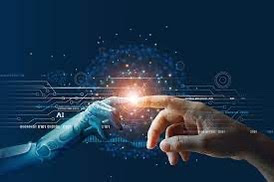Artificial intelligence (AI) is known as the ability of a computer program or a machine to think and learn. The term refers to the simulation of human intelligence by computers on machines. AI is used for many different things, including that it is used to perform human-like tasks by learning from experience. It includes many aspects such as machine learning, which allows machines to improve their performance on a specific task by collecting and learning from data, and natural language processing. This not only allows machines to understand the information but to also generate human language. Some common examples of AI include virtual personal assistants, such as Siri and Alexa, face id, marketing robots, and self-driving cars. However, as it becomes more advanced and improves our world, it also means that there are many negatives.

One of the biggest benefits of AI is that it has improved decision-making. AI and machine learning algorithms can process large amounts of data and identify trends and patterns that humans might not be able to detect. This is beneficial because it helps decision-makers make more informed decisions which lead to more successful outcomes. It has enhanced our customer experiences because it can be used to create personalized experiences for customers such as personalized product recommendations or quicker and easier customer service. This has a major impact on online shopping because customers are more likely to shop online since it's more convenient and they are more satisfied with their shopping experience. Therefore, it improves overall customer satisfaction and loyalty.
 Not only does it improve customer satisfaction, but AI also improves products and services. For example, AI-powered robots can assist with tasks that are dangerous or difficult for humans to accomplish such as performing delicate surgeries, exploring hazardous environments, etc. AI and machine learning are able to do things that we didn’t even know were possible such as developing new products and services that were not previously possible.
Not only does it improve customer satisfaction, but AI also improves products and services. For example, AI-powered robots can assist with tasks that are dangerous or difficult for humans to accomplish such as performing delicate surgeries, exploring hazardous environments, etc. AI and machine learning are able to do things that we didn’t even know were possible such as developing new products and services that were not previously possible.
However, as many benefits and opportunities, it brings to our world, there are some negatives to having AI. One is that AI is known to be a huge security risk. As AI systems become more complex and integrated into critical infrastructure, there becomes more and more risk and invasion of our privacy. There causes a major concern with the risk that they could be more vulnerable to cyber-attacks. This causes many problems because it causes serious consequences such as disrupting vital services or causing physical harm. There is also an issue with ethical concerns. Many people are concerned that it has a potential impact on society and its ethical implications. For instance, with AI becomes more surveillance which is also an invasion of people’s privacy, as well as that it easily has the potential for AI to be used for malicious purposes such as creating fake news or creating cyberbullying attacks. Having AI is that it creates discrimination and bias in society. AI algorithms are trained on data, and if the data used to train the algorithms is biased, the algorithms themselves may be biased. This leads to unfair and discriminatory outcomes, such as biased loan approvals and biased hiring decisions.

In conclusion, there are many pros and cons to artificial intelligence. It has had dramatic impacts on our world in ways we never knew was possible such as increased efficiency, improved decision making, and new and improced products and services. AI is as smart or smarter than the human brain. However, there are also many negatives such as the ethical concerns, securirty risks, job loss, and identitiy theft. While it is a scary thing and can have many dangers, it is important to know how it is used and developed. At some point we must consider the expense that AII becomes too much.

No comments:
Post a Comment